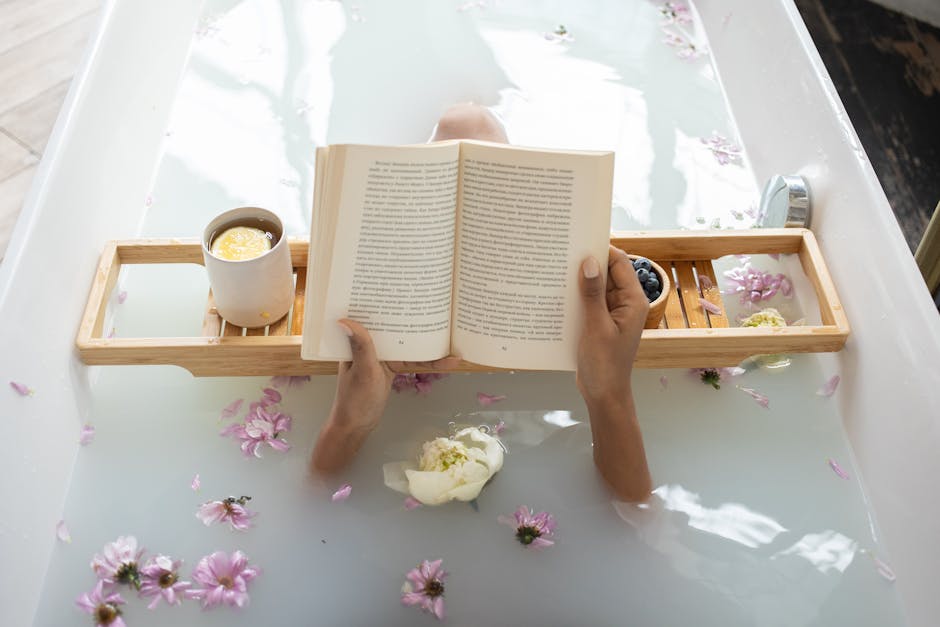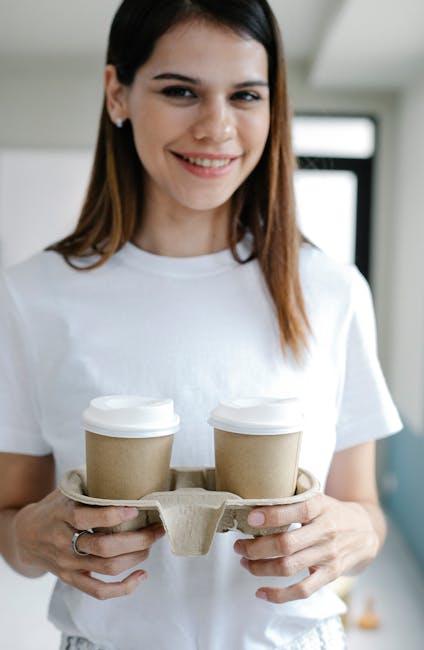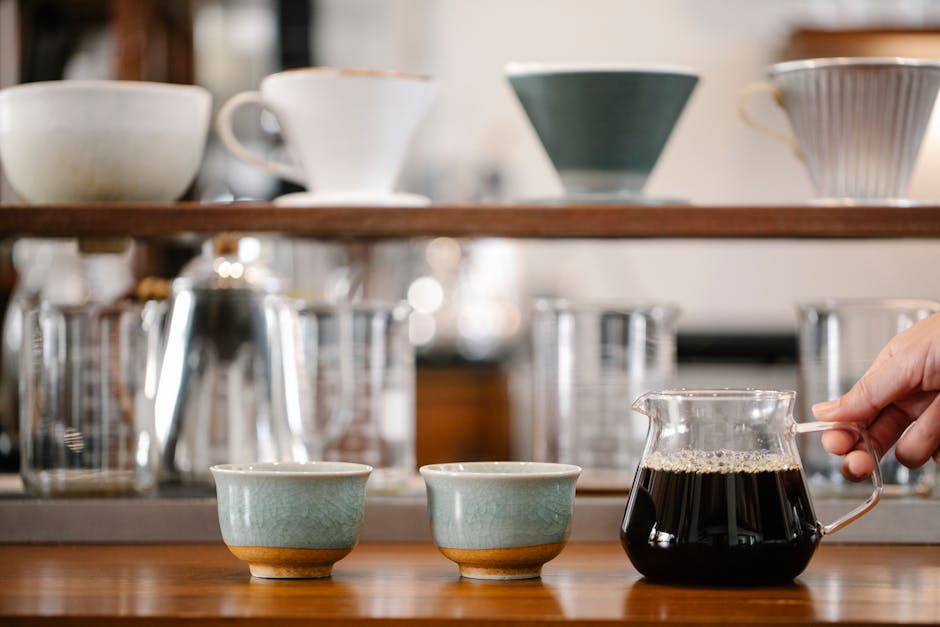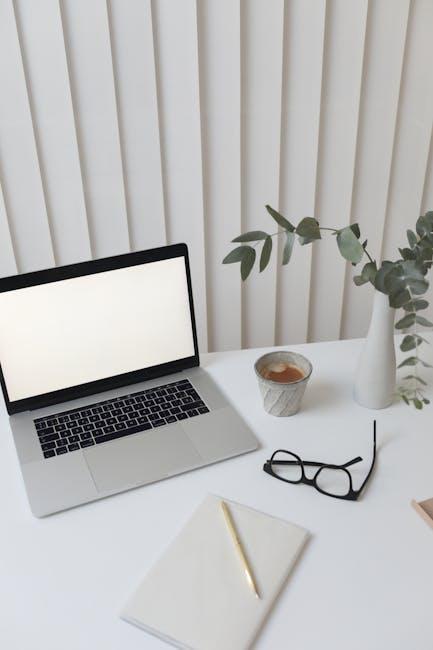Coffee vs. tea: the age-old battle of the beverages. In one corner, we have the robust and invigorating coffee, fueling the daily grind with its rich aroma and powerful jolt of caffeine. And in the other corner, we have the elegant and soothing tea, steeped in tradition and known for its calming properties and vast array of flavors. But which one reigns supreme when it comes to health benefits and cultural significance? Let’s dive into this caffeinated showdown and uncover the truth behind these beloved beverages.
The Origins of Coffee and Tea
Legend has it that coffee was first discovered by a goat herder named Kaldi in Ethiopia. One day, Kaldi noticed that his goats were full of energy after eating certain berries, so he decided to try them himself. Lo and behold, he was soon bouncing around like a hyperactive goat, and thus coffee was born!
Tea, on the other hand, has a more peaceful origin story. It is said that an ancient Chinese emperor accidentally discovered tea when some leaves blew into his pot of boiling water. Being the curious monarch that he was, he decided to taste the concoction and found it to be quite delightful. And thus, tea became a staple in Chinese culture.
Both coffee and tea have come a long way since their humble beginnings. They have become not just beverages, but symbols of culture and tradition. People from all around the world enjoy their daily cuppa, whether it’s a robust espresso or a soothing cup of green tea.
So the next time you take a sip of your favorite brew, remember the humble origins of coffee and tea. Who knew that a curious goat herder and an inquisitive emperor would be responsible for two of the world’s most beloved beverages?
Caffeine Content in Coffee and Tea
Are you in need of a pick-me-up but can’t decide between coffee or tea? Let’s take a closer look at the caffeine content in these two popular beverages!
When it comes to caffeine, coffee is the reigning champion. A standard 8-ounce cup of brewed coffee typically contains anywhere from 95 to 165 milligrams of caffeine. That’s enough to kickstart even the sleepiest of souls!
On the other hand, tea is no slouch in the caffeine department either. A cup of black tea usually contains around 40 to 70 milligrams of caffeine, while green tea packs a slightly lighter punch with 20 to 45 milligrams. But don’t be fooled - tea can still give you that much-needed energy boost!
So whether you prefer the bold and robust flavor of coffee or the soothing and calming qualities of tea, rest assured that both can provide you with the caffeine kick you need to tackle the day ahead. Just be sure to enjoy them in moderation and listen to your body’s cues – after all, nobody wants to be bouncing off the walls like a hyperactive squirrel!

Cultural Significance of Coffee and Tea
So, let’s spill the tea (and coffee)! These two delightful beverages aren’t just beverages – they’re cultural icons that have shaped societies for centuries. Let’s dive into the !
First up, coffee! From Ethiopian coffee ceremonies to Italian espresso shots, coffee has been bringing people together for ages. Whether it’s a quick pick-me-up in the morning or a cozy chat with friends at a café, coffee is more than just a drink – it’s a social ritual. Plus, who doesn’t love the smell of freshly brewed coffee?
And then there’s tea – the calming elixir that has been cherished in countries like China, Japan, and England. From traditional tea ceremonies to the classic British afternoon tea, tea has a way of soothing the soul and bringing people together. Plus, there are so many varieties to choose from – green tea, black tea, herbal tea, the list goes on!
So, next time you sip on a cup of coffee or tea, remember that you’re not just drinking a beverage – you’re partaking in a rich tapestry of cultural traditions and history. Cheers to the magical powers of coffee and tea!

Health Benefits of Coffee and Tea
Who knew that your daily caffeine fix could actually be good for you? It turns out that coffee and tea offer a host of health benefits that might just make you feel a little less guilty about that third cup of the day.
For starters, coffee has been shown to improve brain function, increase metabolism, and even lower the risk of developing Alzheimer’s and Parkinson’s disease. Plus, it’s a great source of antioxidants, which can help protect your cells from damage and reduce inflammation.
And let’s not forget about tea! Not only is it a soothing way to start your day, but it also boasts its own impressive list of health perks. From reducing the risk of heart disease and stroke to improving digestion and boosting your immune system, tea truly is a powerhouse beverage.
So, the next time you reach for that steaming mug of java or a calming cup of chamomile, remember that you’re not just satisfying your caffeine craving – you’re also doing your body a favor. Cheers to good health and even better-tasting brews!

The Rituals and Traditions of Coffee and Tea Drinking
Did you know that there are specific rituals and traditions associated with both coffee and tea drinking? It’s not just a simple matter of pouring a hot beverage into a cup and sipping away. No, there are a whole slew of customs and practices that come with the territory.
For example, in some cultures, it is considered bad luck to stir your coffee and tea with a spoon in a clockwise direction. Instead, you must swirl it in a counter-clockwise motion three times to ward off evil spirits. It may sound a bit superstitious, but who wants to take their chances with angry coffee demons?
Another tradition is the art of serving tea in a specific order of guests based on their importance. It’s like a mini social hierarchy right in your living room. Who knew that a humble cup of tea could cause such drama and intrigue?
And let’s not forget about the all-important biscuit dunking ceremony. It’s a delicate balance of timing and precision to achieve the perfect soggy-but-not-too-soggy biscuit. One must approach this task with the utmost care and concentration, for no one wants a crumbly mess at the bottom of their cup.
FAQs
Which drink is better for energy- coffee or tea?
Well, it depends on how much energy you need. Coffee typically has more caffeine than tea, so if you need a serious jolt, go for the java. But if you prefer a more mellow buzz, tea might be the way to go.
Are there any health benefits to drinking coffee or tea?
Absolutely! Both coffee and tea are loaded with antioxidants, which can help boost your immune system and protect against diseases. Coffee has also been linked to a reduced risk of Parkinson’s disease, while tea has been shown to improve heart health.
Which drink is better for your productivity- coffee or tea?
This one is a bit trickier. Coffee is known for its ability to kickstart your brain and get you in the zone, but tea offers a more sustained energy boost that can help you stay focused for longer periods of time. It really depends on your personal preferences and how your body responds to caffeine.
Is it true that coffee can have a negative impact on your sleep?
Yes, unfortunately, it’s true. Caffeine can stay in your system for up to six hours, so if you’re sensitive to it, drinking coffee too late in the day can definitely disrupt your sleep. On the other hand, some people find that tea doesn’t affect their sleep as much, so it might be a better choice if you’re a night owl.
How can I enjoy coffee and tea while also being mindful of my health?
The key is moderation. It’s totally fine to indulge in a cup of coffee or tea every now and then, but try not to go overboard. And be mindful of how much sugar and cream you’re adding to your drinks- those extra calories can really add up!
—
So, who wins the caffeine showdown?
In the battle of coffee vs. tea, the winner really depends on your personal tastes and preferences. Whether you’re team coffee, team tea, or even team both (we won’t judge), it’s clear that both beverages have their own unique benefits and qualities.
So go ahead, enjoy that morning cup of joe or afternoon spot of tea with pride! Just remember, moderation is key and always listen to what your body needs. And hey, if you can’t decide between the two, why not mix things up and try a coffee-infused tea or a tea-infused coffee? The possibilities are truly endless!
But no matter what you choose, just know that you’re a winner in our book for exploring the wonderful world of caffeinated beverages. Cheers to enjoying your perfect cup, whether it’s coffee, tea, or a little bit of both!






